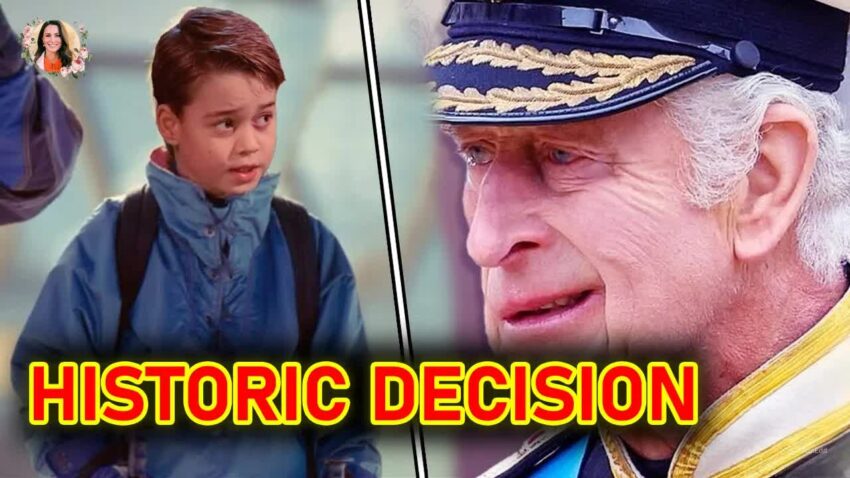Princess Catherine and Prince William, along with their three children – Prince George, Princess Charlotte, and Prince Louis, have captivated the world with their royal presence.
The journey of these young royals into the public eye marks a significant departure from traditional royal norms.
Experts predict that when Prince George ascends to the throne as the future king, he will usher in a new era for the British monarchy.
At just ten years old, Prince George is already being scrutinized for his potential to reshape the monarchy into a more contemporary and informal institution.
While some speculate that he may opt out of military service, a longstanding royal tradition, others emphasize the importance of such discipline in shaping the character of a future king.
The evolving nature of the royal family towards a more streamlined and approachable image aligns with Prince George’s potential to continue this trajectory.
Notably, Prince George’s unique position as the first future king born to a commoner mother symbolizes a departure from centuries-old traditions within the royal lineage.
Observers suggest that under King Charles’ reign, the British monarchy is poised to adapt to a more European model, shedding its imperial past to better suit the nation’s modern identity.
As such, by the time Prince George assumes the throne, the monarchy is expected to undergo significant transformations.
Recent reports indicating that Prince George may not be obligated to serve in the military before becoming king have stirred debates about the relevance of this age-old custom.
Historically, military service has played a crucial role in instilling discipline and humility among royals, ensuring they comprehend their responsibilities and avoid succumbing to self-importance.
The symbolic significance of royals engaging in military duties bolsters the monarchy’s legitimacy and connection to the armed forces.
The coronation of King Charles earlier this year provided a glimpse into the close bond shared among the royal siblings, particularly Prince George and Princess Charlotte.
Their endearing interactions during the ceremony underscored a sense of unity and support within the younger generation of the royal family.
Prince George’s poised demeanor as he fulfilled his ceremonial duties, accompanied by the evident pride displayed by Princess Charlotte, highlighted the siblings’ camaraderie and mutual encouragement.
Observers have noted the striking similarities between Prince George and Princess Charlotte’s dynamic and that of historical royal siblings, such as King Charles and Princess Anne.
Social media buzzed with comparisons, drawing parallels between Charlotte’s assertiveness and Anne’s strong-willed nature, contrasting with George’s contemplative and thoughtful demeanor akin to Charles.
The siblings’ relationship reflects a blend of tradition and modernity within the royal family, hinting at a future where mutual support and camaraderie will shape the monarchy’s evolution.
In the coming years, as Prince George navigates his path towards kingship, the world will witness the unfolding of a modern monarchy guided by a new generation of royals.
The interplay between tradition and innovation, discipline and informality, will define Prince George’s reign and shape the future of the British monarchy.
As the royal family embraces change and adapts to contemporary expectations, the bond between Prince George and Princess Charlotte stands as a testament to the enduring legacy of unity and support within the House of Windsor.
